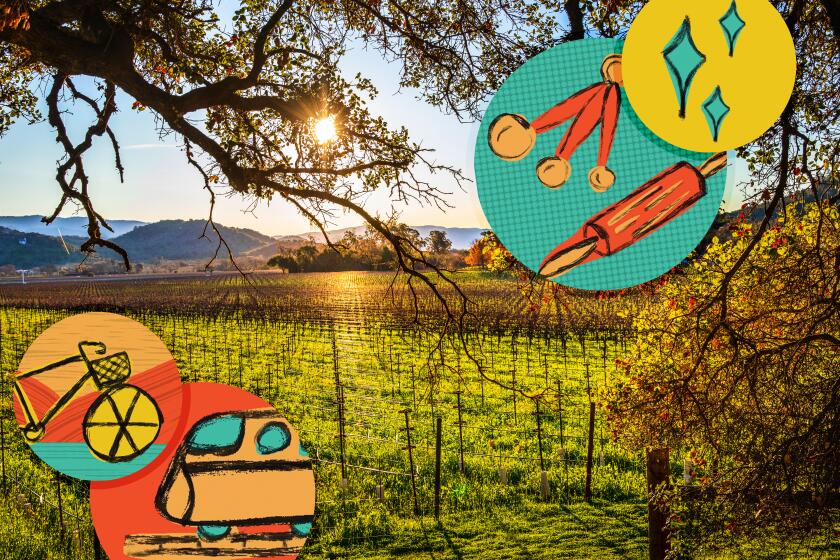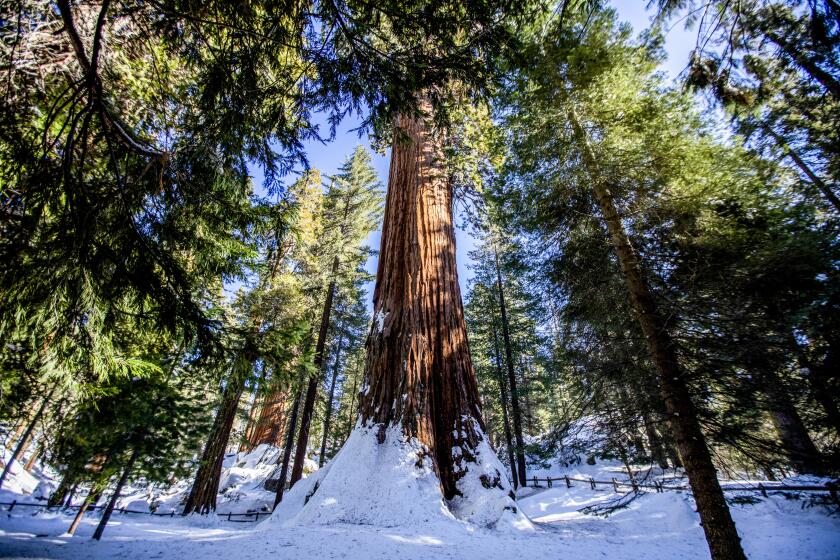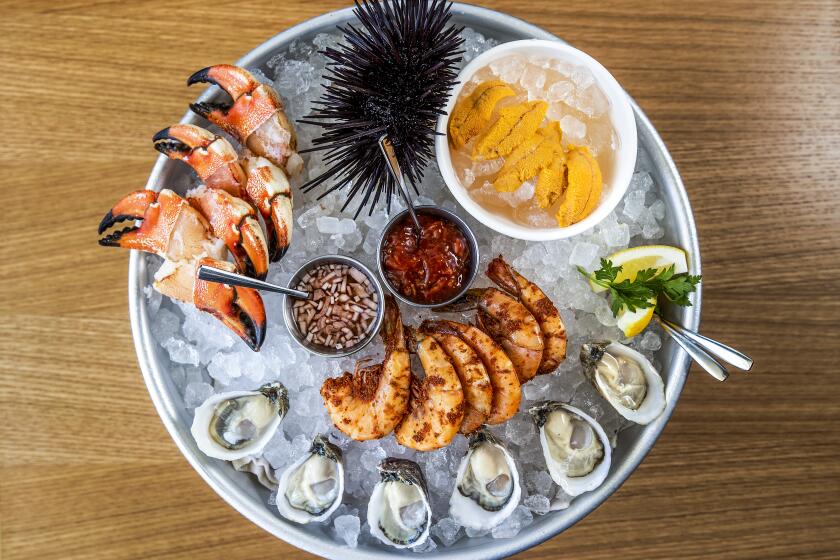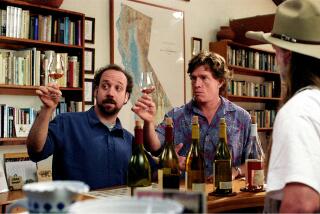The trailblazing career of Black winemaker Iris Rideau — plus a Santa Ynez Valley tour
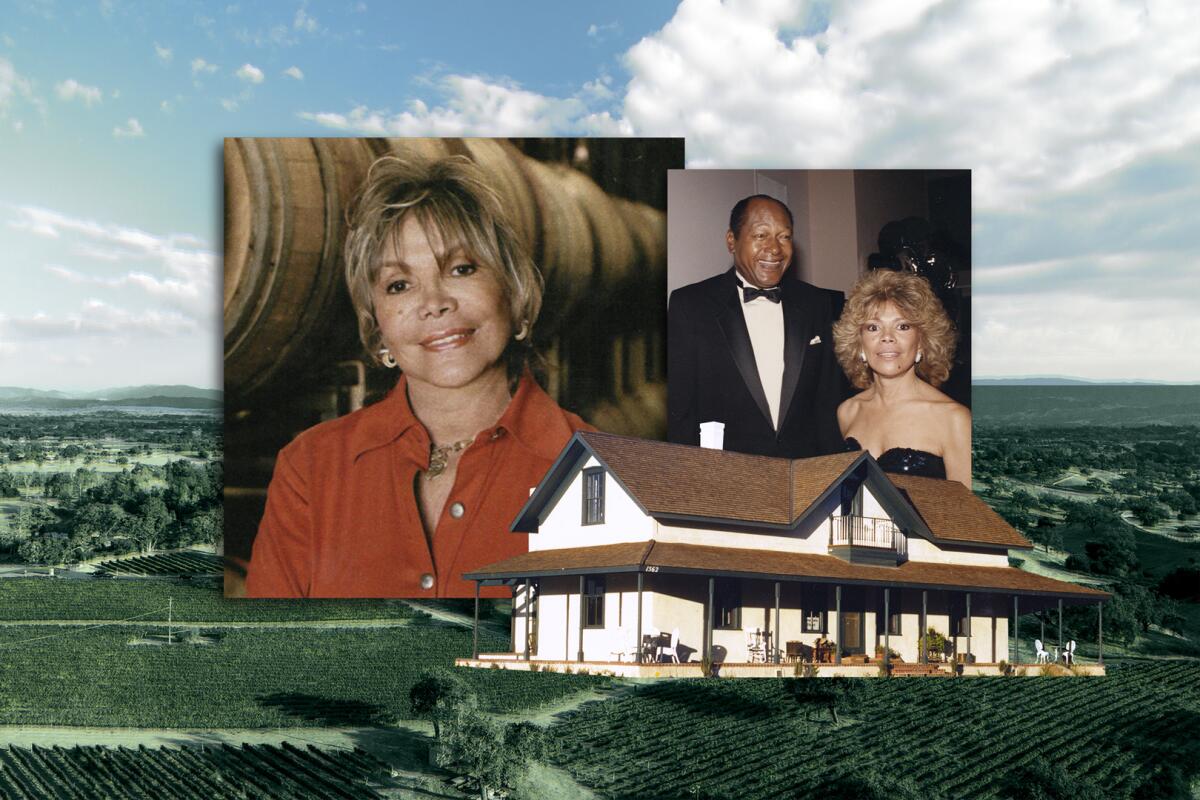
There are only two things you can do if you buy close to 30 acres of land in the Santa Ynez Valley, according to retired winemaker Iris Rideau: raise horses or grow grapes.
“That was an easy decision,” Rideau said, with a laugh. “I don’t ride horses but I do drink wine.”
Rideau, widely celebrated as the first Black woman to own a winery in the U.S., spent an afternoon showing me some of her favorite spots in Santa Barbara’s wine country (travel tips below). By the day’s end, I’d begun to suspect that if Rideau had chosen to pursue equine husbandry instead of winemaking, she might well have excelled at that too.
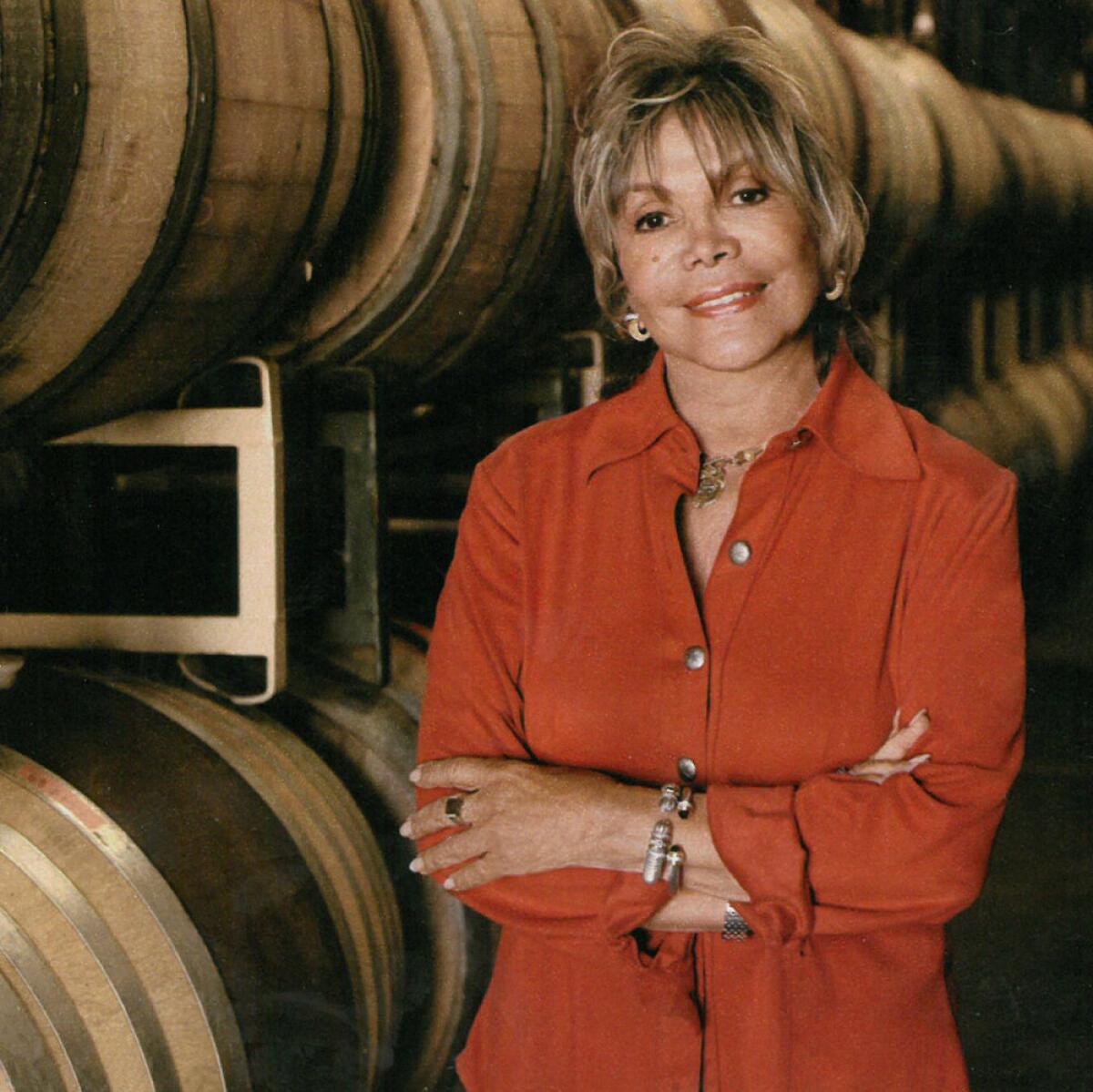
“She’s just exceptional, not just in the wine community but the business world at large,” said wine consultant and CorkCamp founder Kyla Cox, who profiled Rideau for the Vintner Project in 2020. “I think we have a lot to learn from her.”
After more than two decades of channeling her business acumen and hospitality into the wine business, Rideau sold her Solvang vineyard in 2016 to its current owners.
Today, her legacy towers over the Santa Ynez Valley — not unlike the tall pines she planted as saplings along Rideau Vineyard’s driveway that now offer visitors a shady portal to the magic of an afternoon spent wine tasting.
Wine isn’t Napa’s only specialty. There’s plenty to do in the region without ever stepping foot in a vineyard.
Rideau’s decision to create her own vineyard — a massive undertaking, as anyone in the wine industry will tell you — would leave reverberations that extend far beyond this sun-soaked hill country north of Santa Barbara.
“She blazed trails,” said Tahiirah Habibi, founder of the Hue Society, a group dedicated to supporting Black wine culture. “Her presence was really instrumental in a lot of women getting into the wine industry.”
From the Deep South to the Central Coast
Rideau, 85, didn’t always call California home, spending her childhood in Jim Crow-era New Orleans. “At the time, I hated the South. We couldn’t try on clothes. We couldn’t look at white people … we had to put our head down, step off the sidewalk,” she said, recalling the racist laws that institutionalized segregation for generations.
Rideau moved west to California in her early teenage years. After becoming pregnant with daughter Renee, she found work at a sewing factory in Los Angeles to make ends meet.
In California, winter is not just about holiday lights and snow in the mountains. Here are our top 40 picks for wintertime adventures statewide.
“That was the turning point in my life, that sewing factory. It was like, I am never going to stay here,” Rideau said. “I went back to night school and I worked at the factory during the day. And I took business courses, which I loved.”
Rideau’s affinity for business would shape the rest of her life.
After finishing junior college and getting experience at an insurance agency, Rideau eventually opened her own agency and later a financial securities company, specializing in pension planning for public employees.
“I landed the contract with the city of L.A. for their pension plan,” Rideau said. “That’s how I made my money.”
Rideau also worked closely with then-mayor of Los Angeles Tom Bradley in putting together an affirmative action program designed to assist women and people of color in securing contracts with the city.
Here’s a look at national parks in California, Arizona and Utah. These tips could save your winter, spring or summer trip.
Rideau began considering retirement in 1989. “Between politics and the financial world, it was really kind of getting to me,” she said. “So I headed north up the 101.”
She says the Santa Ynez Valley spoke to her soul. “When I turned into this valley, I went: ‘This is it. This is where I want to spend the rest of my life,’” Rideau recalls.
She built a home on the hill over the vineyard she would one day own.
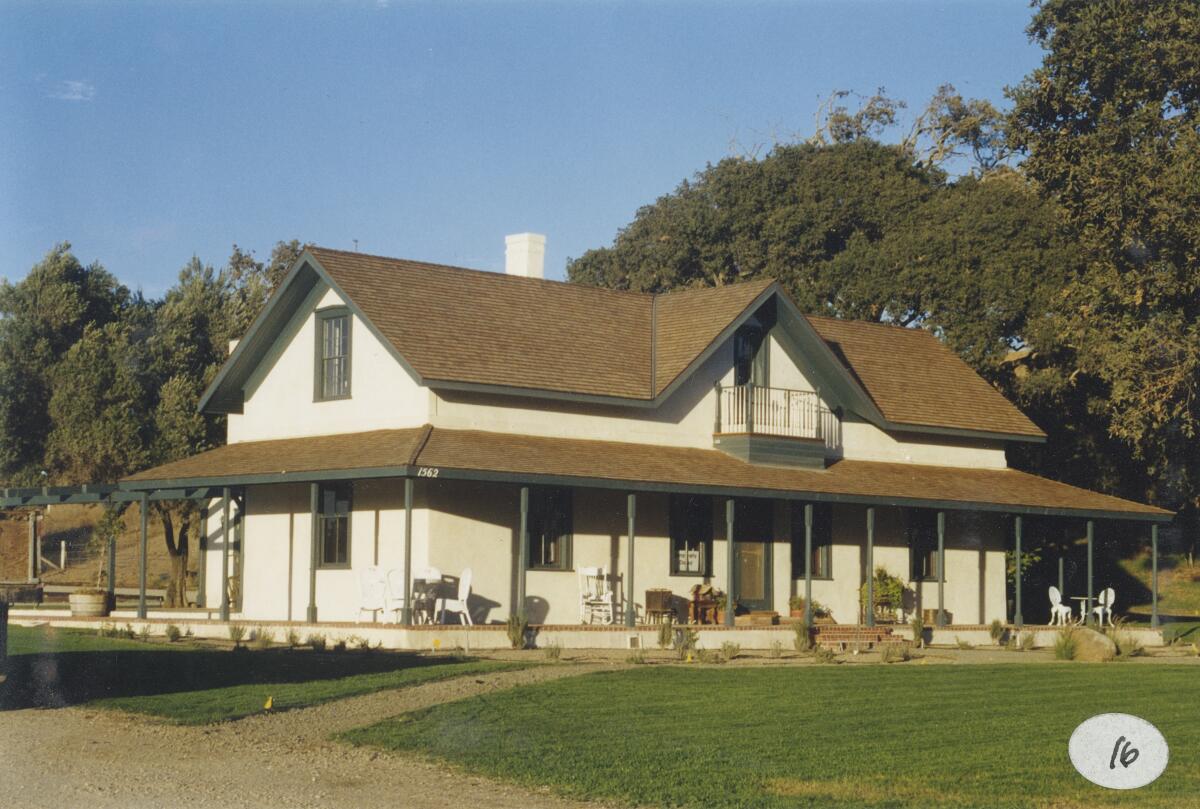
“I purchased a property in ’95, [which] had been abandoned for 10 years. It was a Santa Barbara County historical landmark,” Rideau explained.
The Alamo Pintado Adobe — built in 1884 — would eventually be turned into Rideau Vineyard’s tasting room.
Southern hospitality in the Santa Ynez Valley
Wine tourism in the Santa Ynez Valley looked different when Rideau purchased her vineyard in 1995.
“In those days, wine tasting rooms were pretty much focused on just having people come in to taste wine, buy wines and go,” Rideau said. “My concept was totally the opposite of that — complete hospitality coming from my Southern background.”
Rideau prioritized sharing New Orleans customs with her guests; playing blues and jazz, doling out handfuls of Mardi Gras beads and making gumbo on the weekends.
“I brought my culture to the valley and really had no competition,” Rideau said. “[Guests] would leave and go on the Wine Trail and tell other people about the wonderful experience they had at Rideau.”
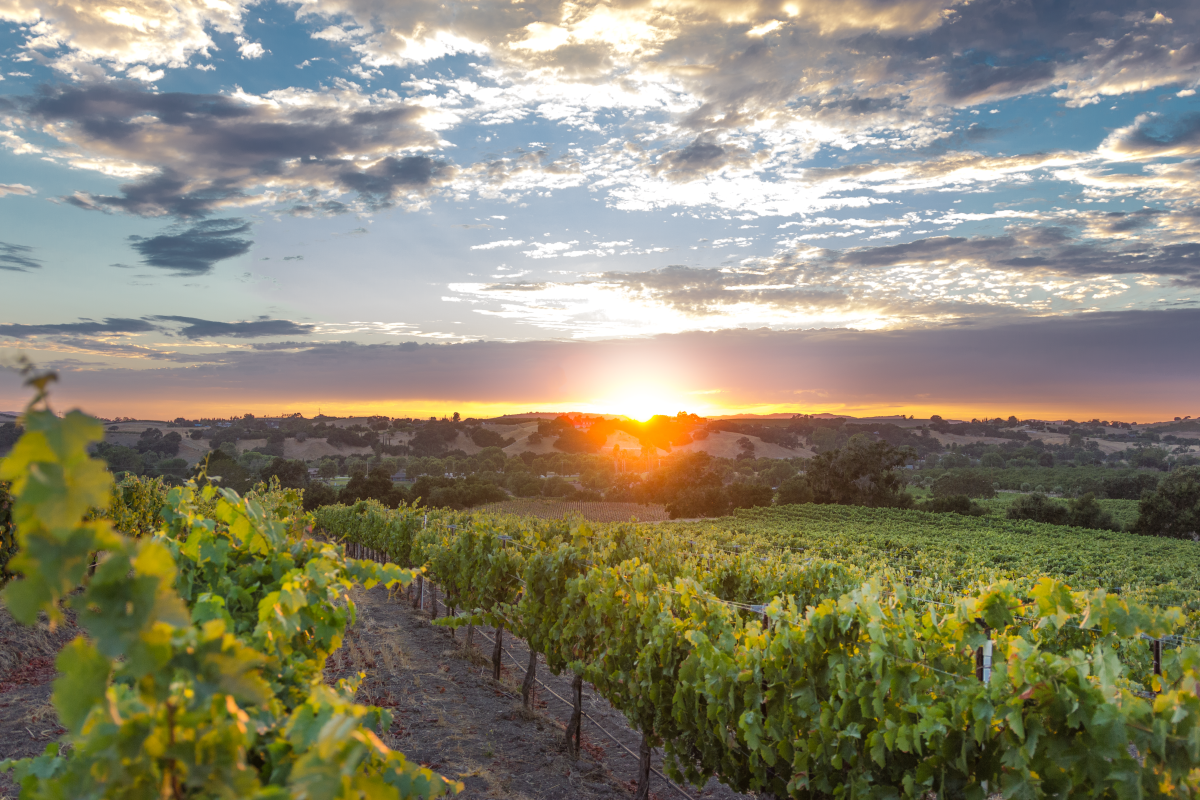
As her vineyard grew in popularity, Rideau began seeking out other women and people of color in the wine industry.
“When I started, I couldn’t find one winemaker of color, and I couldn’t find a woman,” Rideau said. “I finally hired a woman winemaker in 2014.”
In late August 2021, Rideau traveled to the Hue Society’s third annual Wine & Culture Fest in Atlanta as an honored guest.
“We actually named an award after her,” said Habibi. Moving forward, the Iris Rideau Pioneer Award will be given to those the Hue Society recognizes as “paving the way for others as they go along,” Habibi said.
Bar Le Côte : the latest destination restaurant to open in the Santa Ynez Valley
“The wine industry has traditionally been white men, but thanks to Ms. Rideau more women and people of color are now in the industry,” said Theodora Lee, a senior partner and trial lawyer at Littler Mendelson and founder of Theopolis Vineyards. “Because Ms. Rideau opened the door, I am proud to have been recognized as a 2020 Wine Industry Leader by Wine Business Monthly.
“In 2021, I was a Wine Enthusiast’s 22nd annual Wine Star Award Person of the Year nominee. But [if not] for Ms. Rideau, I may not have had these opportunities,” Lee added. “I love her drive, tenacity and determination to succeed despite racism and other barriers.”
Rideau’s passion for the wine industry made her decision to sell her vineyard in 2016 all the more challenging.
“It is hard to make up your mind to sell,” she said. “You have to find the right person.”
For Rideau, the right person was actually two people: Martin and Isabelle Gauthier, a couple from Montreal.
“They are French Canadians, so that’s why it made sense for me,” Rideau said. “There’s a whole history of Cajuns migrating from Canada down to Louisiana. That’s part of my heritage, and so, when I met them, I was like, ‘OK, this all connects.’”
Since retiring from winemaking, Rideau has doubled down on writing a memoir, due to be published this spring, and traveling. “I want to spread my wings and travel to all the places I haven’t been before,” she said. “I plan to go to New Orleans every year from now on.”
Two women in the wine industry challenged wineries to join the fight against racism, leading to a plan to bring diversity to the industry they love.
Despite her penchant for travel, Rideau keeps deep roots planted in the fertile soil of the Santa Ynez Valley
Living just a few minutes away, she makes frequent visits to her former vineyard, accompanied by her two Havanese dogs. “It’s still part of my life.”
Interested in experiencing a slice of Rideau’s life in the Santa Ynez Valley? Here’s where she took me during the summer afternoon we spent together:
Rideau Vineyard
Begin your afternoon of wine tasting by sampling Rideau’s signature flight, which showcases the vineyard’s Rhone varietals.
Take time to enjoy Rideau Vineyard’s picnic tables and the shade of its ancient oaks. “This place is truly magical,” a fellow guest said to me as he took in the view.
Care to take a bottle home with you? Rideau suggests her “absolute favorite white wine,” the Stainless Steel Estate Viognier. “This is like drinking water for me. I drink this every night,” she said.
Beckmen Vineyards
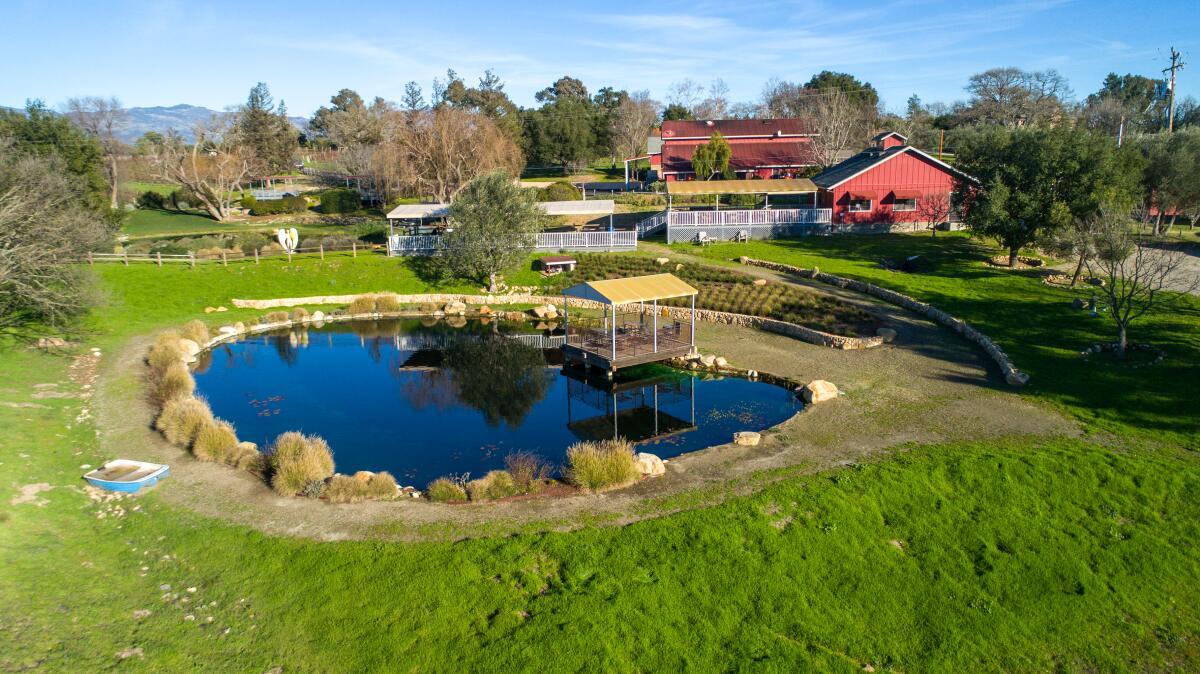
After finishing up at Rideau, continue your tour of the valley’s Rhone varietals at Beckmen Vineyards. “They make some of the finest Rhones in the valley,” Rideau said.
Take time to enjoy the view of Beckmen’s ponds, specially designed to attract birds, turtles, frogs and other wildlife. The water features echo the vineyard’s dedication to biodiversity and natural biodynamic farming.
Tom Beckmen said that when he and Judy Beckmen bought their vineyard, “Farming practices were not the greatest here.
“Early on, we put about 40 acres in biodynamic farming. And after a couple of years, it was so dramatically different. It just looked so much healthier,” he said.
The Beckmen influence reaches beyond the confines of Santa Barbara County. “We had one of our Grenache wines served at the White House,” said marketing manager Taylor Hart. “The 2007 Estate Grenache was at Barack Obama’s first state dinner as president.”
Vincent Vineyards

Just a mile down the winding Ontiveros Road and across California 154 from Beckmen lies Vincent Vineyards.
Gazing across the outdoor tasting terrace and rows of thriving vines, it’s hard to imagine the dead walnut orchard that covered the land before owners Tony and Tanya Vincent brought the winery to life in the mid-aughts.
Since then, the Vincents have transformed the space into an instantly memorable place to sip, from the black-and-white photo of Tony with members of the Rat Pack showcased on one wall of the winery’s interior to the mountains of Los Padres National Forest peeking over the vines.
In addition to Vincent Vineyards’ upscale interior, the tasting experience feels homey and accessible — like stopping by a friend’s patio for a glass of wine.
Rideau calls the Vincents her “best friends in the valley,” explaining how Tanya’s warmth and commitment to hospitality pervade the vineyard. “She reminds me of me,” Rideau said.
Refugio Ranch tasting room
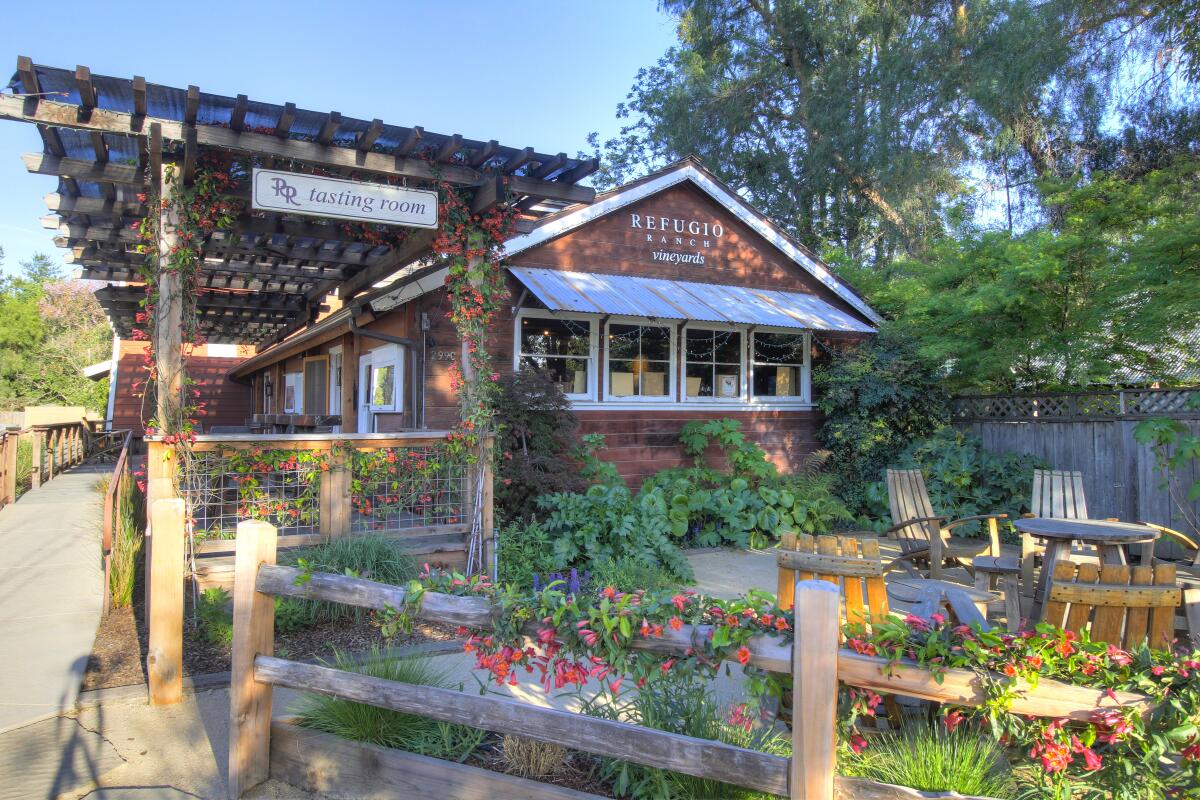
Save some time to stroll Grand Avenue in nearby Los Olivos, lined with tasting rooms, finishing up at rustic-chic Refugio Ranch.
“I just love this place. To me, it represents the valley. It’s laid-back, it’s country,” said Rideau as we walked through the wooden doors. “This is the locals’ hangout.”
Proprietor Kevin Gleason — the Gleason Family Vineyards portfolio he runs with his wife, Niki, includes Refugio Ranch — can speak firsthand to the friendliness that pervades the valley’s vineyards first-hand.
“I met more people in three months here than in two years in Santa Barbara,” Gleason said, recalling his early days in the valley.
Gleason, a fellow “Rhone ranger” alongside Rideau, is serious about his role as an ambassador of Santa Ynez Valley winemaking, which only began gaining wide recognition in the 1990s.
“The most exciting wines are being made right here, right now,” Gleason said. “We’re not competing with Napa. We’re creating the Central Coast.”
More to Read
Sign up for The Wild
We’ll help you find the best places to hike, bike and run, as well as the perfect silent spots for meditation and yoga.
You may occasionally receive promotional content from the Los Angeles Times.
